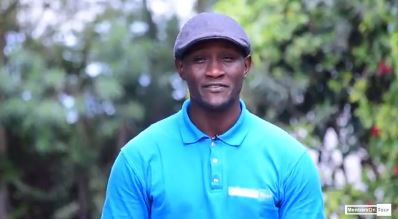I would first pray, to God to give me wisdom… wisdom to know what is important and what is not. I would then do research… to know who to consult, and who not to. To know what is beneficial to conserve, and what not to.
I would make a conscious decision to go down to the grass roots, to the old men and women… the craftsmen who made irinkan and siaren naarok, the traditional herbsmen of osokonoi and those who ate olkikua keri and nkosikosi. I would seek the indulgence of noo yeyio in the art of building a house, when to “tumurra” enkaji… and why they don’t increase the size of the window for God’s sake!
I would seek the words of the soloists that did eoko, recounting their escapes and praises; and record the resounding response of the age set. I would sit down and to understand how they come up with the words. I would sit kokoo down, and listen to her kukuu tung’ani tales around the fire amid the flickering eyes of terrified children. I would request to write down wise sayings in a round sitting of old men, with young people shooting questions.
I would sit down the observers of the moon and clouds, and consolidate the scientific knowledge of the revolution of the earth with their wisdom on weather and stars…
I would reconcile the knowledge they so much gather in the natural response of animals to change in weather… in reading the weather pattern when the hallo and olmunishoi predict the same thing as the rain gauge of the meteorologists.
I would join the old people in the old ways of blessing the newly married, on the significance of milk and blessing… the words, “inyio amu itaa olee” and the significance of olkumpau. I would follow up on the specificity of cows to be offered in dowry and why they oiled the dead.
Then I pray to God, to give me wisdom, to be a good counsel… not of knowledge but of strategy to those who are in a position to engage the people. To involve the government, NGOs dealing with culture preservation and most importantly, the communities that hold dear these practices… to work with young professionals who know how to use technology and new storytelling tools in inventorying and publicizing these cultures respectfully… to engage leaders to promote, in their speeches and budgets, the establishment of cultural festivals, cultural centers, museums and archives… and safe spaces for the capacity building and promotion of induction… seminars and conversations revolving around safeguarding and sifting of viable cultural practices… to publicize with proper guidelines the various cultural ceremonies, secure intellectual property rights and promote sustainable tourism… commercializing of commercialize-able aspects of culture… and protecting the Maa craftsmen and women from exploitation.
I would strive to have a wave of young men and women, thirsting to count 1-1,000,000 without uttering a word… young people wearing nkamuka naaboruni tenchoni, comfortably in town… young people replacing golden earrings with identifiable copper and beaded “muna” that can identify them with their status as married or not… in society.
*If I were to save Maa culture*, I would recognize that there is no way I could save culture as Kipainoi. I would recognize that the only way to do it, is by involving the people to whom the culture truly means something to… the community… the people, not other organizations… not even the government. The people… to whom culture truly belongs to.



